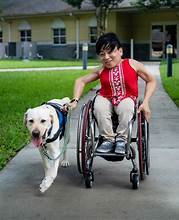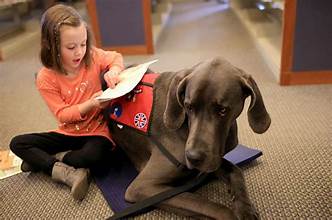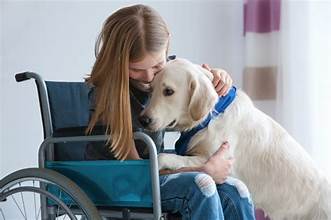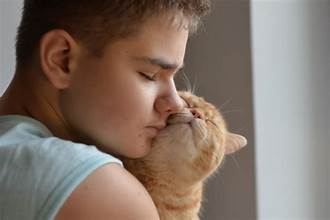A Heartfelt Look at How Dogs Sense and Respond to Human Differences
If you’ve ever watched a dog gently approach a child with autism, lie quietly beside someone with anxiety, or stay close to a person in a wheelchair, you might have wondered:
Do dogs know when someone has special needs?
This is one of the most asked—and touching—questions people ask when considering a companion, therapy, or service dog for themselves or a loved one. As someone who deeply values the bond between animals and families, especially those with disabilities or special needs, I’d love to share what I’ve learned.
Let’s explore this beautiful connection together.
🧠 Dogs Don’t Understand “Disability” – But They Do Understand People
Dogs may not grasp the concept of “special needs” as humans define it. However, they are attuned to human energy, body language, tone, and emotional states.

That means they often sense when someone moves, communicates, or experiences emotional ups and downs differently, and they adjust their behavior accordingly.
They pick up on:
- Subtle body cues
- Shifts in voice tone
- Uneven or unusual movement patterns
- Changes in smell or hormones (yes, dogs can smell stress!)
This sensitivity isn’t based on intellect—it’s rooted in instinct and loyalty. Dogs are natural caregivers. They often respond to the emotional needs around them without being asked.
🐕 Real-Life Stories Show Us the Answer
Ask any parent of a child with special needs who has a dog in the house, and you’ll likely hear the same thing:
“Our dog just knew to be gentle with our son.”
“She wouldn’t leave my daughter’s side when she was having a meltdown.”
Whether it’s a service dog trained to help or a beloved family pet, many dogs just know when someone needs extra care, gentleness, or patience.
🧩 Dogs and Autism: A Natural Connection
Many dogs bond closely with children on the autism spectrum. They offer:

- Calming physical presence during sensory overload
- Predictable routines and companionship
- Emotional grounding is when the child feels overwhelmed or isolated
And here’s the amazing part—many dogs do this even without formal training. It’s their way of communicating love, support, and safety.
💛 Dogs Can “Read” Emotions
Dogs are wired to respond to the emotional states of those they care about. If someone is:

- Anxious or upset, they may nuzzle or offer physical closeness
- Sad or quiet – they might lay close or stay near without demanding attention
- Happy and energetic – they often join in and mirror that joy
For people with disabilities—whether emotional, developmental, or physical—this ability to sense and respond without words is deeply healing.
🐾 Not All Dogs Respond the Same Way (And That’s Okay)
It’s important to know that not every dog will intuitively understand or respond well in every situation. Some dogs are more sensitive than others. Some individuals may require additional exposure and socialization to feel confident around mobility devices, loud vocalizations, or unpredictable behaviors.
That’s why therapy and service dogs undergo extensive temperament testing and training to ensure they can remain calm, patient, and helpful in various settings.
🐶 How to Encourage a Bond with a Child or Adult with Special Needs
If you’re considering adding a dog to your home—or already have one—here are some gentle ways to help build a bond:
- Go slow. Allow the person and the dog to learn each other’s signals at their own pace.
- Use scent. To build familiarity, let the dog smell the person’s clothing or personal items.
- Offer calm, structured time together. Gentle brushing, sitting side by side during TV time, or reading to the dog can work wonders.
- Reward quiet bonding moments. Praise your dog for calm behavior around your loved one.
🌈 Final Thoughts
Do dogs sense if someone has special needs?
They know what matters.
They know when someone needs comfort.
They know when to offer stillness.
They know how to show love without words.
Dogs don’t need a diagnosis or a label to recognize when someone’s heart needs extra support. And that’s what makes them so special.
Thank you for exploring comfort animals, therapy pets, or service dogs for your child, yourself, or someone you care about. You’re looking for connection, peace, and hope. In my experience, dogs are one of the best bridges to that healing.




